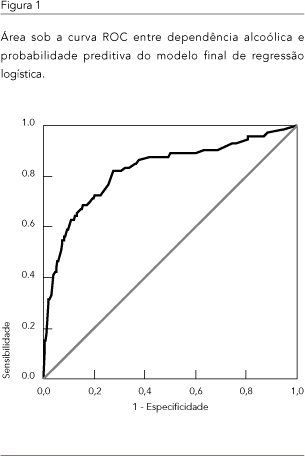This cross-sectional study aimed to estimate the prevalence of alcohol addiction as detected by primary healthcare services, analyzing its association with clinical, socio-demographic, and behavioral characteristics. The sample included 755 individuals who attended primary healthcare services in the city of Bebedouro, São Paulo State, Brazil, from August 30 to September 30, 2006. Alcohol addiction was investigated using the Alcohol Use Disorders Identification Test (AUDIT). According to the findings, 9.8% of the sample showed scores suggestive of alcohol addiction (zone IV) on the AUDIT. This group consisted predominantly of male individuals 20 to 39 years of age, white, married, and Catholic. A significant association remained with male gender, smoking, single marital status, lower income, and higher schooling. The strongest predictors of this association were male gender (OR = 5.18), smoking (OR = 7.01), and university schooling (OR = 2.11). Alcohol addiction affects a significant proportion of users of primary healthcare services. In general, male smokers with more schooling and who report some clinical diagnosis were more likely to show an AUDIT score suggestive of alcohol addiction.
Alcoholism; Health Services; Primary Health Care




